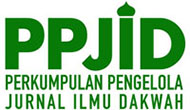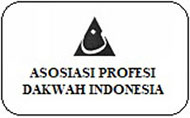The Polemic of Wayang in Da’wah Stage: Digital Contestation for Religious Authority
Abstract
Understanding the polemic of wayang in da'wah, which is being discussed in the digital space, has shown how religious authority is contested. Differences in understanding, group background, culture, interests, and ideology have made the dynamics of the contestation more complex. This article discusses the factors that influence the polemic about the use of wayang in da'wah in the digital space and complements the shortcomings of previous studies. This qualitative research uses the content analysis method on online media data and Twitter for one month. The results of this study indicate that the contestation occurs not only in the gripping and traditional authorities but also in the new authorities who are present amid polemics. The media is part of an authority that has its logic, where media users are free to produce and market ideas in the digital space. This condition becomes a new problem that can undermine traditional authority's power and make the world of da'wah a religious contestation arena.
Keywords
Full Text:
PDFReferences
Abdullah A. M. (1996). Warisan Islam di Jawa, dari spiritualitas ke moralitas. In A. Mahasin (Ed.), Ruh Islam Dalam Budaya Bangsa (p. 177). Yayasan Festifal Istiqlal.
Abdullah, I. A. I. (2017). DI BAWAH BAYANG-BAYANG MEDIA: Kodifikasi, Divergensi, Dan Kooptasi Agama Di Era Internet. Sabda: Jurnal Kajian Kebudayaan, 12(2), 116–121.
Abdullah, I., Hudayana, B., Kutanegara, P. M., & Indiyanto, A. (2019). Beyond school reach: Character education in three schools in Yogyakarta, Indonesia. Journal of Educational and Social Research, 9(3), 145.
Abidin, Z. (2015). Wahabisme, Transnasionalisme dan Gerakan-Gerakan Radikal Islam di Indonesia. Tasamuh, 12(2), 130–148.
Afandi, (2022, February 15) Wayang, Kebudayaan Jawa, dan Muhammadiyah. Retrieved from: https://muhammadiyah.or.id/wayang-kebudayaan-jawa-dan-muhammadiyah/
Aguilar, G. K., Campbell, H. A., Stanley, M., & Taylor, E. (2017). Communicating mixed messages about religion through internet memes. Information, Communication & Society, 20(10), 1498–1520.
Ahyar, M., & Alfitri. (2019). Aksi bela islam: Islamic clicktivism and the new authority of religious propaganda in the millennial age Indonesia. Indonesian Journal of Islam and Muslim Societies, 9(1), 1–29. https://doi.org/10.18326/ijims.v9i1
Ain (2022, February 15). PBNU: Wayang Menjadikan Banyak Orang Masuk Islam. CNN Indonesia. Retrieved from: https://www.cnnindonesia.com/nasional/20220215180037-20-759564/pbnu-wayang-menjadikan-banyak-orang-masuk-islam
Akmaliah, W. (2020). The demise of moderate Islam: New media, contestation, and reclaiming religious authorities. Indonesian Journal of Islam and Muslim Societies, 10(1), 1–24. https://doi.org/10.18326/ijims.v10i1.1-24
Al-Qaradhawi, D. Y. (2007). Retorika Islam : Bagaimana seharusnya menampilkan wajah Islam (edisi Indonesia) (kedua). Jakarta: Pustaka Al-Kautsar.
Ali, Fachri and Effendy, B. (1986). Merambah Jalan Baru Islam : Rekonstruksi Pemikiran Islam Indonesia (pertama). Bandung: Mizan.
Arifianto, A. R. (2020). Rising Islamism and the Struggle for Islamic Authority in Post-Reformasi Indonesia. TRaNS: Trans-Regional and -National Studies of Southeast Asia, 8(1). https://doi.org/10.1017/trn.2019.10
Azhari, Y. (2018). Budaya Sunda Versus Radikalisme Islam. Lensa Budaya: Jurnal Ilmiah Ilmu-Ilmu Budaya, 13(1).
Biyanto, B. (2010). Muhammadiyah dan problema hubungan agama-budaya. ISLAMICA: Jurnal Studi Keislaman, 5(1), 88–99.
Boonen, A. (2005). Everyone has the right to work. In Journal of Rheumatology (Vol. 32, Issue 4).
Burhani, A. N. (2019). Between Social Services and Tolerance: Explaining Religious Dynamics in Muhammadiyah. ISEAS-Yusof Ishak Institute.
De Brún, A., & McAuliffe, E. (2018). Social network analysis as a methodological approach to explore health systems: A case study exploring support among senior managers/executives in a hospital network. International Journal of Environmental Research and Public Health, 15(3). https://doi.org/10.3390/ijerph15030511
Diyan (2021, June 14). Muhammadiyah Tidak Anti Budaya. Retrieved from: https://suaramuhammadiyah.id/2021/06/14/muhammadiyah-tidak-anti-budaya/
Fealy, G. (1997). Tradisionalisme Radikal; Persinggungan Nahdlatul Ulama-Negara. Yogyakarta: LKIS Pelangi Aksara.
Gus Miftah Official Channel. (2022). Retrieved from: https://www.youtube.com/watch?v=W4aig1UJh10
Gustavo, M. C. and C. (2005). The Network Society From Knowladge to Policy. In Castells, Manuel and Cardoso, Gustavo (Ed.), The Network Society From Knowladge to Society (Vol. 3, Issue February 2004, pp. 53–60).
Hafid, W. (2020). Contestation and the Roles of Islam in The Public Sphere: A Sociological Analysis of Religious Secularization in Indonesia and the WestMENYOAL GERAKAN SALAFI DI INDONESIA (Pro-Kontra Metode Dakwah Salafi). Al-Tafaqquh: Journal of Islamic Law, 2(1), 29–48.
Hamdi, S. (2019). De-Kulturalisasi Islam dan Konflik Sosial dalam Dakwah Wahabi di Indonesia. Jurnal Kawistara, 9(2), 164–178.
Hamid, A. (2016). Dakwah dalam Perspektif Paradigma Tradisionalisme dan Reformisme. Kordinat: Jurnal Komunikasi Antar Perguruan Tinggi Agama Islam, 15(1), 89–104.
Haramain, M., Juddah, A. B., & Rustan, A. S. (2020). Contestation of Islamic Radicalism in Online Media: A Study with Foucault’s Theory on Power Relation. Paper presented at Proceedings the 19th Annual International Conference on Islamic Studies, AICIS 2019, 1-4 October 2019, Jakarta, Indonesia.
Haryanto, J. T. (2015). Relasi Agama dan Budaya dalam Hubungan Intern Umat Islam. Jurnal SMART (Studi Masyarakat, Religi, Dan Tradisi), 1(1).
Hasan, N. (2018). Transnational Islam, violent activism, and cultural resistance. London: Routledge Handbook of Contemporary Indonesia.
Hew, W. W. (2018) THE ART OF DAKWAH: social media, visual persuasion and the Islamist propagation of Felix Siauw, Indonesia and the Malay World, 46:134, 61-79, DOI:10.1080/13639811.2018.1416757
Hidayatullah, A. (2019). Paradigma Dakwah Kultural: Dimensi Sufisme dalam Kontruksi Karakter Bima pada Pewayangan Jawa. Jurnal Ilmu Dakwah, 39(2), 101–111.
Hidayatullah, A. (2021). Walisongo Da’wah Strategy: Analysis of the Symbolism of Amar Ma’ruf Nahi Munkar in Semar and Togog Characters. Munazzama: Journal of Islamic Management and Pilgrimage, 1(1), 63–78.
Hidayatullah, M. S., Dimyathi, M. S., Abdullah, Z., & Handayani, R. (2020). The Cyber Islam Contestation In Indonesia. International Journal of Advanced Science and Technology, 29(7), 34–44.
Høigilt, J. (2013). Islamist rhetoric: Language and culture in contemporary Egypt. In Islamist Rhetoric: Language and Culture in Contemporary Egypt. Taylor and Francis. https://doi.org/10.4324/9780203841778
Hosen, N. (2019). Challenging Traditional Islamic Authority: The Impact of Social Media in Indonesia. Proceedings of International Conference on Da’wa and Communication, 1(1). https://doi.org/10.15642/icondac.v1i1.280
Ikhwan, S., & Wafi, M. H. (2022). Internet and Religious Identity Construction: Jurus Sehat Rasulullah (JSR) Da’i (Preacher) Zaidul Akbar. Jurnal Dakwah Risalah, 32(2), 184–198. https://doi.org/10.24014/jdr.v32i2.15711
Jinan, M. (2012). New Media dan Pergeseran Otoritas Keagamaan Islam di Indonesia. Jurnal Lektur Keagamaan, 10(1), 181–208. https://jurnallekturkeagamaan.kemenag.go.id/index.php/lektur/article/view/178
Jubba, H., Awang, J., & Sungkilang, S. A. (2021). The Challenges of Islamic Organizations in Promoting Moderation in Indonesia. Wawasan: Jurnal Ilmiah Agama Dan Sosial Budaya, 6(1), 43–54.
Kardiyanto, W. (2018). Kesenian Prophetik Walisongo Dan Seni Wayang Purwa. Lakon Jurnal Pengkajian & Penciptaan Wayang, 15(2).
Karim, A., & Wajdi, F. (2019). Propaganda and da’wah in digital era (A case of hoax cyber-bullying against ulama). KARSA: Jurnal Sosial Dan Budaya Keislaman, 27(1), 172–205.
Kim, H.-J. (2010). Praxis and Religious Authority in Islam: The Case of Ahmad Dahlan, Founder of Muhammadiyah. Studia Islamika, 17(1). https://doi.org/10.15408/sdi.v17i1.468
Lindgren, S. (2013). The potential and limitations of twitter activism: Mapping the 2011 libyan uprising. TripleC, 11(1), 207–220. https://doi.org/10.31269/triplec.v11i1.475
Lupton, D. (2014). Digital Sociology. In Digital Sociology. https://doi.org/10.4324/9781315776880
Madjid, N. (1987). Islam Kemoderenan dan Keindonesiaan. Bandung: Mizan.
Manovich, L. (2002). The language of new media. Cambridge: MIT press.
Masitah, D. (2021). KOMODIFIKASI PAHAM AHLUSSUNNAH WAL JAMAAH (Kajian Konflik Perebutan Pengaruh Elite Nahdlatul Ulama dan salafi). CV Literasi Nusantara Abadi.
McIntosh, H. (2019). Social Media and Research Methods. In Understanding Communication Research Methods. https://doi.org/10.4324/9781315167664-14
Meuleman, J. (2011). Dakwah, competition for authority, and development. Bijdragen Tot de Taal-, Land-En Volkenkunde/Journal of the Humanities and Social Sciences of Southeast Asia, 167(2–3), 236–269.
Mujib, A. (2020). Culture In Da’wa Songo Wali. Riayah, 5(01), 65–72.
Mukti, M. (2008). Resistensi Wayang Sadat dalam Menghadapi Hegemoni Muhammadiyah. Jurnal Penelitian Humaniora, 13(1).
Mukti, M. (2009). Relasi Estetika Wayang dan Estetika Agama. Imaji: Jurnal Seni Dan Pendidikan Seni, 7(1).
Muna, M. N. (2020). MODERATE ISLAM IN LOCAL CULTURE ACCULTURATION: The Strategy of Walisongo’s Islamization. Islamuna: Jurnal Studi Islam, 7(2), 166–184.
Mundiri, A., & Tohet, M. (2018). Contestation of Religious Identity in the Cyber World: A Case Study of arrahmah. com and VOA Islam Dealing with Religious Others on Facebook. Walisongo J. Penelit. Sos. Keagamaan, 26(2), 391–416.
Muttaqin, A. (2020). Women’s identity in the digital islam age: Social media, new religious authority, and gender bias. Qudus International Journal of Islamic Studies, 8(2), 353–388. https://doi.org/10.21043/qijis.v8i2.7095
Nakamura, M., & Kafrawi, S. (1995). Nahdatul Ulama. The Oxford Encyclopedia of The Modern Islamic World, 3.
Palupi, R. (2019). Penyalahgunaan media sosial sebagai alat propaganda. Jurnal Komunikasi, 10(1), 69–76.
Razi, F. (2011). NU dan kontinuitas dakwah kultural. Jurnal Komunikasi Islam, 1(2), 161–171.
Redjosari, S. M. (2019). Salafi dan stigma sesat-radikal. Islamica: Jurnal Studi Keislaman, 13(2), 305–324.
Rosidi, I. (2021). Da’wah and politics among Muslim preachers in contemporary Indonesia. Intellectual Discourse, 29(1), 35–52.
Saat, N., & Burhani, A. N. (2020). The new santri: Challenges to traditional religious authority in Indonesia. ISEAS-Yusof Ishak Institute.
Saura, G., Muñoz-Moreno, J. L., Luengo-Navas, J., & Martos, J. M. (2017). Protesting on Twitter: Citizenship and empowerment from public education. Comunicar, 25(53), 39–48. https://doi.org/10.3916/C53-2017-04
Solikin, S., Syaiful, M., & Wakidi, W. (2013). METODE DAKWAH SUNAN KALIJAGA DALAM PROSES ISLAMISASI DI JAWA. PESAGI (Jurnal Pendidikan Dan Penelitian Sejarah), 1(2).
Tohari, A. (2022). Kontestasi wacana keislaman mengenai keakidahan antara portal Muslim. Or. Id dan Nu. Or. Id: analisis framing Robert Entman. UIN Sunan Ampel Surabaya.
Turmudi, E. (2012). Puritanism Vis-A-Vis Traditionalism: Islam in Modern Indonesia. Harmoni, 11(2), 25–42.
Turner, B. S. (2007). Religious Authority and the New Media. Theory, Culture & Society, 24(2), 117–134. https://doi.org/10.1177/0263276407075001
Ulum, R. (2016). Salafi-Wahabi vs NU (Pertentangan Keberadaan STAI Ali bin Abi Thalib di Semampir Surabaya). Harmoni, 15(1), 68–78.
Umar, M. T. (2020). Islam dalam Budaya Jawa Perspektif Al-Qurâ€TM an. IBDA: Jurnal Kajian Islam Dan Budaya, 18(1), 68–86.
Van Bruinessen, M. (1996). Traditions for the future: The reconstruction of traditionalist discourse within NU. Nahdlatul Ulama, Traditional Islam and Modernity in Indonesia, 163–189.
Van Bruinessen, M. (1999). Global and local in Indonesian Islam. Japanese Journal of Southeast Asian Studies, 37(2), 158–175.
Van Dijk, K. (1998). Dakwah and indigenous culture: the dissemination of Islam. Bijdragen Tot de Taal-, Land-En Volkenkunde, 154(2), 218–235.
Wahid, D. (2012). Challenging religious authority: The emergence of Salafi Ustadhs in Indonesia. Journal of Indonesian Islam, 6(2), 245–264.
Wahid, D., & Makruf, J. (2017). Suara salafisme radio dakwah di Indonesia. Kencana.
Zuhdi, M. H. (2017). Dakwah dan Dialektika Akulturasi Budaya. RELIGIA.
DOI: http://dx.doi.org/10.24014/jdr.v33i1.16906
Refbacks

This work is licensed under a Creative Commons Attribution-ShareAlike 4.0 International License.
Editorial Office:
2nd Floor, Building of Faculty of Da'wah and Communication, Universitas Islam Negeri Sultan Syarif Kasim Riau. Jl. HR Soebrantas Km 15, Simpangbaru, Tampan, Pekanbaru
Email : jurnalrisalah@uin-suska.ac.id

This work is licensed under a Creative Commons Attribution-ShareAlike 4.0 International License.














